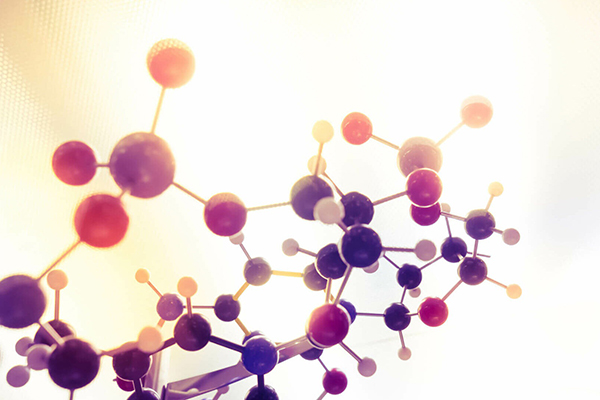The pursuit of a taller stature has been a fascination for many individuals, especially during their formative years. Various factors play a crucial role in determining one’s height, including genetics, nutrition, and lifestyle choices. Among the dietary elements, protein intake is often highlighted as a critical factor that can influence growth and development. As such, the question arises: does consuming a substantial amount of meat contribute to an increase in height?
In this article, we delve into the scientific evidence surrounding the potential impact of meat consumption on height growth. We explore the nutritional components of meat that are believed to support growth, the recommended dietary practices for optimal development, and whether meat alone can truly make a significant difference in one’s vertical journey. By examining the available data and studies, we aim to shed light on the relationship between meat consumption and height, empowering readers with a well-informed perspective on this intriguing topic.
Join us as we sift through the facts and myths, unraveling the truth behind the claim that eating a lot of meat can lead to a taller stature. Whether you are a parent seeking to understand the dietary needs of your growing child or an individual looking to make informed choices about your nutrition, this article will provide valuable insights into the fascinating world of height growth and its potential connection to meat consumption.
Nutritional Value of Various Types of Meat:
Meat is a valuable source of essential nutrients that play a crucial role in maintaining a healthy and balanced diet. Different types of meat offer varying nutritional profiles, each contributing its unique set of vitamins, minerals, and macronutrients. Here’s an overview of the nutritional value of common types of meat:

Beef:
Rich in protein: Supports muscle growth and repair.
Iron: Important for oxygen transport and overall energy levels.
Vitamin B12: Essential for nerve function and red blood cell production.
Zinc: Supports the immune system and helps with wound healing.
Chicken:
High-quality protein: Aids in building and maintaining muscle mass.
Vitamin B6: Important for metabolism and brain function.
Niacin (Vitamin B3): Helps convert food into energy and supports skin health.
Phosphorus: Vital for bone health and energy production.
Pork:
Complete protein: Provides all essential amino acids for body functions.
Thiamin (Vitamin B1): Helps convert food into energy and supports nerve function.
Selenium: Acts as an antioxidant and supports the immune system.
Vitamin B6: Important for brain development and function.
Lamb:
Protein: Supports tissue repair and enzyme production.
Iron: Essential for oxygen transport and preventing anemia.
Vitamin B12: Important for neurological health and DNA synthesis.
Zinc: Supports the immune system and promotes skin health.
Fish:
Omega-3 fatty acids: Crucial for heart health and brain function.
Vitamin D: Important for bone health and immune system regulation.
Selenium: Acts as an antioxidant and supports thyroid function.
Iodine: Essential for thyroid hormone production.
Turkey:
Lean protein: Supports muscle growth and repair.
Vitamin B6: Helps convert food into energy and supports metabolism.
Phosphorus: Important for bone and teeth health.
Selenium: Supports antioxidant defense and immune function.
Remember that while meat provides valuable nutrients, it is essential to balance your diet with a variety of foods, including fruits, vegetables, whole grains, and dairy products. Moderation is also crucial, as excessive consumption of certain types of meat, especially processed meats, has been associated with potential health risks.
How does eating a lot of meat affect height?
The impact of eating a lot of meat on height is a subject of interest and speculation. While meat is a valuable source of protein and essential nutrients that support overall growth and development, it is not the sole determinant of one’s height.
Protein is a critical building block for the body, including bones, muscles, and tissues. Adequate protein intake is essential during childhood and adolescence, as these are the periods of most rapid growth. Meat, being a high-quality protein source, can contribute to meeting the body’s protein requirements.
However, it’s important to note that height is largely influenced by genetics. The genes inherited from parents play a significant role in determining a person’s potential height. External factors, such as nutrition, physical activity, and overall health, can influence whether an individual reaches their full genetic height potential.
While consuming an appropriate amount of protein, including meat, can support growth, excessive meat consumption does not guarantee an increase in height beyond an individual’s predetermined genetic potential. In fact, excessive protein intake from any source may not provide additional benefits and can even lead to other health issues.
Furthermore, a balanced diet that includes a variety of nutrient-rich foods, such as fruits, vegetables, whole grains, and dairy products, is crucial for overall health and development. Nutrients like calcium, vitamin D, and other minerals play a vital role in bone health and, indirectly, height.
Benefits of Meat for Health:
Meat is a valuable dietary component that provides various health benefits due to its nutrient-rich composition. When consumed as part of a balanced diet, meat can offer several advantages for overall health and well-being. Here are some of the benefits of including meat in your diet:
- Protein Source: Meat is an excellent source of high-quality protein, containing all essential amino acids necessary for building and repairing tissues. Proteins are essential for muscle development, enzyme production, and immune function.
- Nutrient-Dense: Different types of meat offer a wide range of essential nutrients, including vitamins and minerals. For example, iron, zinc, vitamin B12, and selenium are abundant in various meats, supporting various bodily functions such as oxygen transport, immune system maintenance, and nerve function.
- Iron Absorption: Meat contains heme iron, which is more readily absorbed by the body compared to non-heme iron found in plant-based sources. Adequate iron intake is crucial for preventing iron-deficiency anemia and maintaining energy levels.
- Vitamin B12 Source: Vitamin B12 is primarily found in animal products, making meat an essential source for individuals following diets that may lack this vitamin. Vitamin B12 is vital for nerve function and red blood cell production.
- Muscle Health: Meat, particularly lean cuts, provides essential nutrients for muscle health and strength. This is especially beneficial for athletes and individuals engaging in regular physical activity.
- Satiety: Protein-rich foods like meat can promote feelings of fullness and satiety, which may help with weight management and controlling food intake.
- Brain Function: Omega-3 fatty acids, found in certain types of meat like fatty fish, are essential for brain health and cognitive function.
- Essential Amino Acids: Meat provides all nine essential amino acids that the body cannot produce on its own, ensuring that the body receives a complete protein profile.
- Wound Healing: Proteins in meat play a crucial role in wound healing and tissue repair.
- Pregnancy and Growth: During pregnancy and childhood, adequate protein intake from meat is vital for supporting healthy fetal development and growth in children.
It’s essential to consume meat in moderation and choose lean cuts to avoid excessive saturated fat intake. Additionally, individual dietary preferences and health conditions should be considered when incorporating meat into one’s diet. As with any dietary choice, balance and variety are key to achieving optimal health benefits.

Eating Too Much Meat: Is it Harmful to the Body?
Consuming meat can be a valuable part of a balanced diet, providing essential nutrients and protein. However, excessive consumption of meat, especially certain types, can have potential adverse effects on health. Here are some ways that eating too much meat may be harmful to the body:
- High Saturated Fat Intake: Some types of meat, such as red meat and processed meat (e.g., bacon, sausages), are high in saturated fat. Overconsumption of saturated fat can lead to an increased risk of heart disease, elevated cholesterol levels, and obesity.
- Increased Risk of Chronic Diseases: Studies have linked excessive meat consumption, particularly processed and red meats, to an increased risk of certain chronic diseases, including cardiovascular disease, certain cancers (e.g., colorectal cancer), and type 2 diabetes.
- Digestive Issues: Eating large amounts of meat, especially if it’s not balanced with sufficient fiber intake from fruits and vegetables, can lead to digestive problems such as constipation and discomfort.
- Kidney Strain: High protein intake, especially from animal sources, can put a strain on the kidneys. Individuals with pre-existing kidney conditions may need to be cautious about their meat consumption.
- Environmental Impact: Overconsumption of meat can have negative environmental consequences, including deforestation, greenhouse gas emissions, and water pollution, as the meat industry contributes significantly to these issues.
- Antibiotic Resistance: The routine use of antibiotics in animal farming can lead to the development of antibiotic-resistant bacteria, which poses a serious threat to public health.
- Possible Carcinogens: Some cooking methods, such as grilling or barbecuing meat at high temperatures, can produce compounds called heterocyclic amines and polycyclic aromatic hydrocarbons, which are potential carcinogens.
To mitigate potential risks associated with excessive meat consumption, it’s advisable to adopt a balanced and varied diet that includes a wide range of nutrient-rich foods, such as fruits, vegetables, whole grains, nuts, and legumes. For those who choose to eat meat, opting for lean cuts and moderating portion sizes can also help promote a healthier diet.
As with any dietary choice, individual factors, including age, activity level, and overall health status, should be considered, and consulting with a healthcare professional or registered dietitian can provide personalized guidance for a well-rounded and health-conscious eating plan.
- Related post: 10 Signs of Teen Growth Spurt
Copyright of the article belongs to Deliventura



